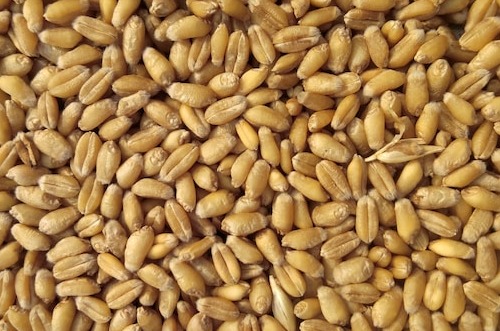W4 Wheat Update: Global Wheat Shipments via Suez Canal Experienced 40% YoY Plunge in Early Jan-23 Amid Security Concerns and Route Reconsideration

Global Wheat Shipments via Suez Canal Dropped 40% YoY in Early Jan-23
Amid ongoing disruptions, the World Trade Organization (WTO) reports a substantial 40% year-on-year (YoY) decrease in global wheat shipments via the Suez Canal in the first half of Jan-23, amounting to 0.5 million metric tons (mmt). This decline is attributed to the Houthi group's attacks on commercial vessels in the Bab-el Mandeb Strait, prompting major shipping companies to reconsider their routes. Before the attacks, alternative shipping routes accounted for approximately 3% of total trade, but this figure surged to 42% post-Houthi strikes. The resulting disturbances have led to a doubling of insurance rates for ships in the Red Sea and increased costs for vessels associated with Israel. Furthermore, there are discussions about implementing a war risk premium scheme for shipping companies, adding additional complexity to the situation.
Bulgaria Achieved Record Wheat Exports in 2023/24 Season, Marking 113% YoY Rise
During the first half of the 2023/24 season (Jul-23 to Dec-23), Bulgaria achieved a record pace of wheat exports, totaling nearly 4 mmt to the European Union (EU) and third countries. This represents a 44% increase compared to the average of the last five years and a 113% YoY rise. The outstanding performance is due to a strategic decision by Bulgarian farmers who refrained from selling in the previous season in anticipation of better prices. In contrast to French farmers who sold at relatively high prices in 2022/23, Bulgarian exports were among the lowest. The combination of high opening stocks, a larger-than-expected harvest of 6.5 mmt, and ongoing price pressure created favorable conditions for unprecedented export levels. Notably, approximately 3 mmt were shipped to third countries, with Indonesia, Spain, and Algeria emerging as the top buyers, while around 1 mmt was exported to the EU. The reluctance of farmers to sell at perceived low prices resulted in an increase in ending stocks in Bulgaria to around 1 mmt.
Egypt Plans to Import Over 5 MMT of Wheat in 2023/24 MY
Egypt's Ministry of Supply and Internal Trade, represented by the General Authority for Supply Commodities (GASC), has targeted to import over 5 mmt of wheat in the 2023/24 marketing year (MY) through international tenders. This imported wheat is for the production of subsidized bread allocated to citizens eligible for food support. Egypt imported around 4.5 mmt of wheat from various sources in 2022/23 MY. This includes 2.93 mmt from Russia, 780 thousand metric tons (mt) from Romania, 360 thousand mt from France, 270 thousand mt from Bulgaria, and 120 thousand mt from Ukraine.
India Expanded Wheat Cultivation Area to 34 Million Ha in the 2023/24 Rabi Winter Season
According to data released by the Ministry of Agriculture on January 20, India witnessed an expansion in the cultivation area for cereal crops, particularly wheat, in the 2023/24 Rabi winter season. Wheat cultivation covered 34 million hectares (ha) during this season.
Canada Exported 11.2 MMT of Wheat in 2023/24 MY as of January 14
As of January 14, Canada exported a total of 11.2 mmt of wheat to foreign markets since the start of the 2023/24 MY, as stated by Canadian Grain Commission. This figure is only 1% YoY lower than the previous season. Soft wheat accounted for 9.4 mmt, durum wheat contributed 1.4 mmt (experiencing a 38% YoY decline), and grain of other varieties reached 0.39 mmt, showing an 8% YoY increase.






